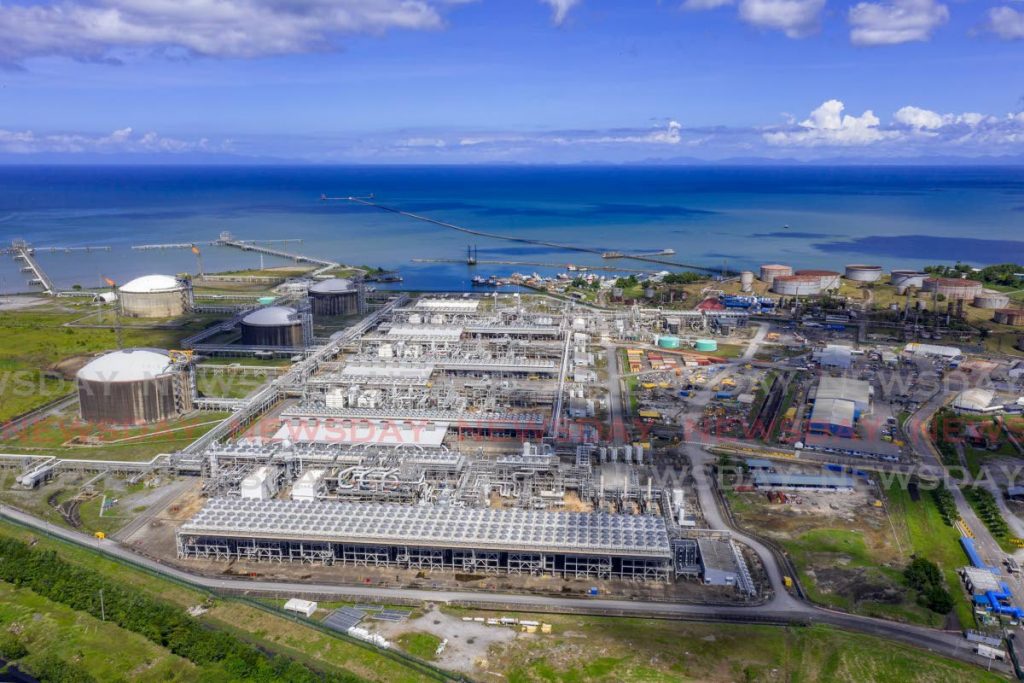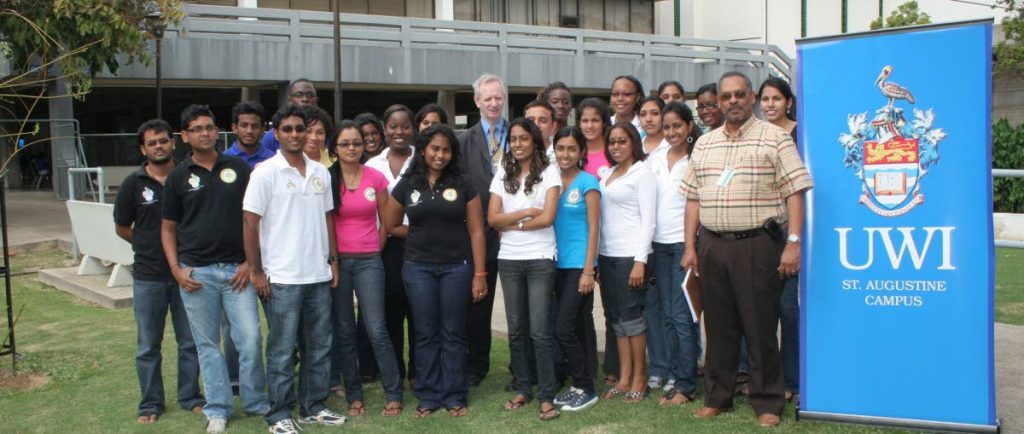20 years of petroleum geoscience at UWI

Geological Society of TT
September marks 20 years since the first cohort of students enrolled in UWI, St Augustine’s bachelor's in petroleum geoscience (PGSC) programme. UWI offers dozens of degree programmes across its campuses, so what makes this one worthy of its own article? With just over 200 graduates in its history, few programmes have had such a direct impact on the country’s economy.
In simple terms, a geoscientist interprets all manner of data to pick the spot on a map to drill for oil and gas and say how deep they need to go. The geoscientists coming out of this programme have played key roles in the exploration for and development of many (if not most) of the oil and gas fields in TT over the past two decades. They have worked across all the operators including BP, BG (now Shell), Repsol (assets now owned by Perenco), Petrotrin (now Heritage), BHP, EOG, Touchstone, De Novo and many others. Many have also been on the regulatory side, playing key roles at the Ministry of Energy in bid rounds, data collection and interpretation as well as management of upstream contracts.
Let’s go back to 1999 to understand why the programme was birthed. TT’s gas industry was growing tremendously with the launch of Atlantic LNG. To supply gas in the quantities needed, fields needed to be found consistently. However, the existing petroleum geoscientists were mainly foreigners and were aging.
How could we get new geos who were also locals to fill the void? Pressure was also coming from the TT government to have more local high-level professionals working in the sector. As 3D seismic surveys became the norm, with it, the growing need for geologists that could also speak the language of the geophysicist.
All of this led to the birth of the undergraduate programme in petroleum geoscience with a real focus on petroleum geology and petroleum geophysics, being introduced into the St Augustine campus in 2001. Several organisations played a pivotal role in getting this degree off the ground – the State represented by the Ministry of Energy and Petrotrin, major upstream companies like BP and BG, our own GSTT and of course UWI. The late prime minister Patrick Manning, a geologist himself, is known to have taken a keen interest in the programme as well. The PGSC degree became UWI’s second geological programme outside of the Mona campus’ BSc in geology.
This was one of the very few geological undergraduate degrees globally to be found within a faculty of engineering, as opposed to natural or earth sciences. As such, students did mandatory engineering courses such as maths, fluid dynamics, engineering management, statistics, among others. These, coupled with the core courses like paleontology, petrophysics, geochemistry, field mapping, petroleum economics, geophysics, sedimentology and mineralogy, created what lecturers used to refer to as “numerate geologists, a rare phenomenon.” The degree was also the first overseas one accredited by the Geological Society of London.
Small class sizes (15 on average) allowed a level of one-on-one interaction with lecturers not common to most universities. Each student probably did at least a dozen full presentations over the degree, an excellent preparatory tool for the world of work. Field trips were abundant on weekends and took students to all parts of Trinidad, particularly the southern basin (where many producing fields exist) as well as the massive sandstone outcrops along Mayaro beach.

Another unique feature was mandatory internships during the July/August vacation. Students got amazing opportunities to work directly with operators. During the final year, a project would be carried out with a company using real data with industry supervisors, and the students would go to that company one day per week. It was a fantastic mix of university life and industry that produced graduates who could hit the ground running right out of school.
Countless barrels of oil and cubic feet of natural gas have been discovered, developed and produced in TT due to direct work carried out by PGSC alumni. Many walk the halls of national and multi-national international oil companies in technical positions, as senior managers or have broadened into different roles, all leaving an imprint on the sector.
Internationally, many have taken opportunities to further studies to master's and even doctorate level at some of the most prestigious universities in the world. Alumni have competed globally, and made their mark in all corners of the globe – Alaska, Russia, Mexico, Brazil, China, Malaysia, UK, Azerbaijan, West Africa, Venezuela, Canada, Belize, Norway, Saudi Arabia and of course right here in TT. Several are even working in Guyana and Suriname, the world’s hottest new basin.
There have been significant challenges over the course of the programme’s life. It has weathered at least three oil and gas economic crashes (in 2008, 2014 and most recently in 2020). With every crash, the battle for funding gets a bit harder, and the job opportunities for graduates become less and less. In the last five years especially, students have struggled to obtain jobs as geoscientists, with many choosing to diversify into other career paths. One of the pieces of advice, is that if you have completed the programme, you have attained an ability to integrate disparate and complex datasets into cohesive models. This is useful as a geoscientist but is absolutely invaluable in any profession. Think of your degree as a key to unlock the potential of any career you can think of.
The programme is evolving and may focus less on petroleum and more on geoscience in the coming years, mirroring the industry’s push into greener ways of producing energy.
The GSTT would like to recognise and thank all the students, lecturers, administrators and programme sponsors over the years, for their contribution that has shaped our country’s energy landscape and continues to shape its energy future.


Comments
"20 years of petroleum geoscience at UWI"